The AnandTech Coffee Lake Review: Initial Numbers on the Core i7-8700K and Core i5-8400
by Ian Cutress on October 5, 2017 9:00 AM EST- Posted in
- CPUs
- Intel
- Core i5
- Core i7
- Core i3
- 14nm
- Coffee Lake
- 14++
- Hex-Core
- Hyperthreading
Grand Theft Auto V
The highly anticipated iteration of the Grand Theft Auto franchise hit the shelves on April 14th 2015, with both AMD and NVIDIA in tow to help optimize the title. GTA doesn’t provide graphical presets, but opens up the options to users and extends the boundaries by pushing even the hardest systems to the limit using Rockstar’s Advanced Game Engine under DirectX 11. Whether the user is flying high in the mountains with long draw distances or dealing with assorted trash in the city, when cranked up to maximum it creates stunning visuals but hard work for both the CPU and the GPU.
For our test we have scripted a version of the in-game benchmark. The in-game benchmark consists of five scenarios: four short panning shots with varying lighting and weather effects, and a fifth action sequence that lasts around 90 seconds. We use only the final part of the benchmark, which combines a flight scene in a jet followed by an inner city drive-by through several intersections followed by ramming a tanker that explodes, causing other cars to explode as well. This is a mix of distance rendering followed by a detailed near-rendering action sequence, and the title thankfully spits out frame time data.
There are no presets for the graphics options on GTA, allowing the user to adjust options such as population density and distance scaling on sliders, but others such as texture/shadow/shader/water quality from Low to Very High. Other options include MSAA, soft shadows, post effects, shadow resolution and extended draw distance options. There is a handy option at the top which shows how much video memory the options are expected to consume, with obvious repercussions if a user requests more video memory than is present on the card (although there’s no obvious indication if you have a low-end GPU with lots of GPU memory, like an R7 240 4GB).
To that end, we run the benchmark at 1920x1080 using an average of Very High on the settings, and also at 4K using High on most of them. We take the average results of four runs, reporting frame rate averages, 99th percentiles, and our time under analysis.
All of our benchmark results can also be found in our benchmark engine, Bench.
MSI GTX 1080 Gaming 8G Performance
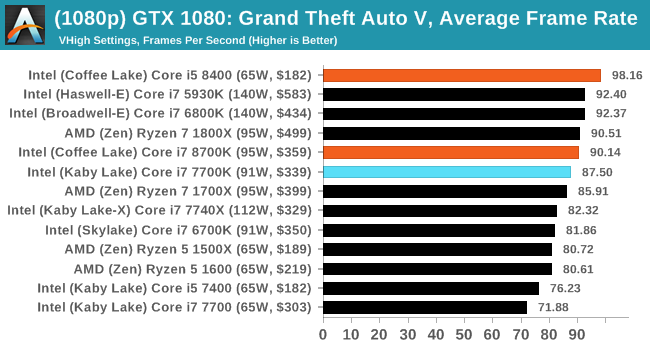
1080p

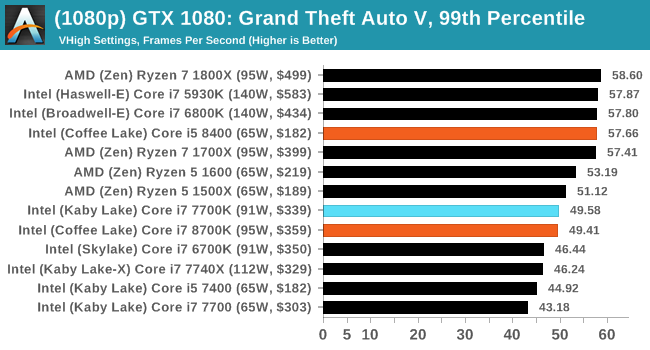
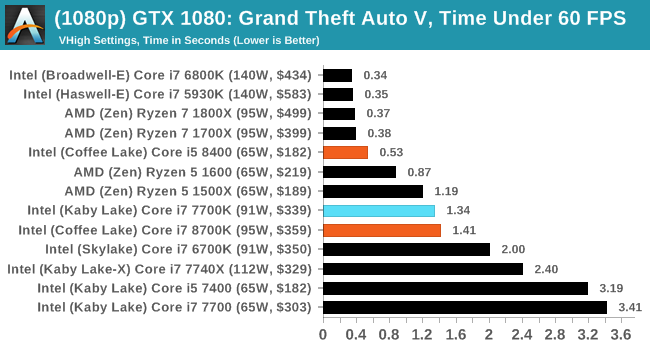
4K
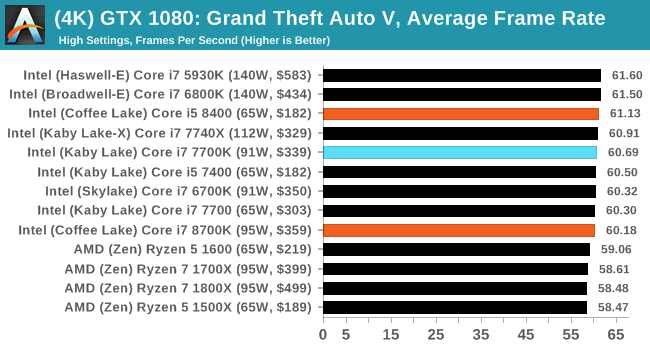
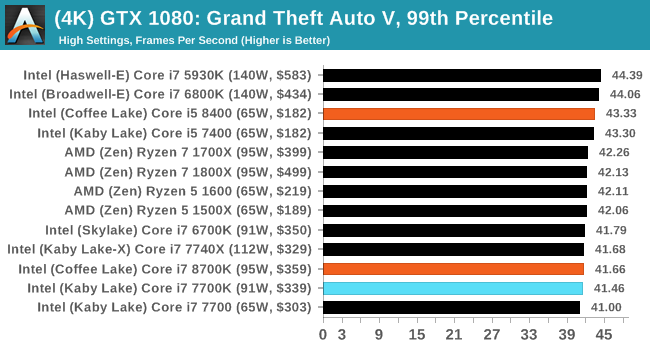



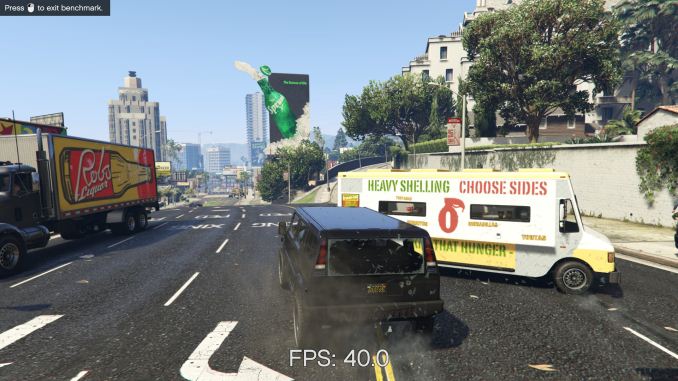
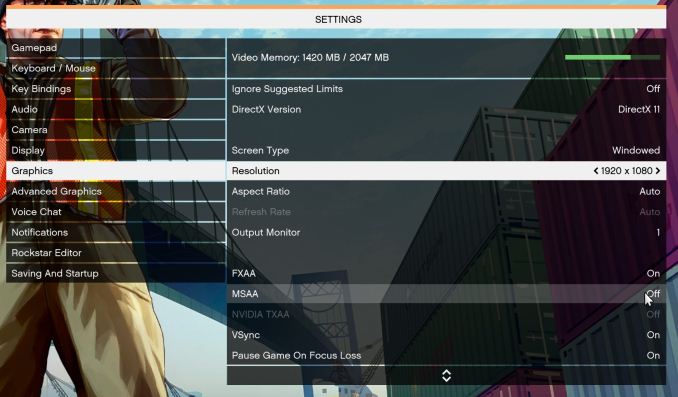








222 Comments
View All Comments
madwolfa - Thursday, October 5, 2017 - link
How in the world 8400 is so significantly faster than 7700K/8700K in all ROTR 1080p benchmarks?neo_1221 - Thursday, October 5, 2017 - link
Maybe resource contention on the hyper-threaded parts? It is odd, but I'm very impressed with that 8400. For most workloads it easily hangs out with the $300+ CPUs.risa2000 - Friday, October 6, 2017 - link
Not only RoTR but also in GTAV. I hope there is an explanation the guys at AT will figure out. If it was the congestion of the threads (as suggested above) then all Ryzen chips should be even worse, but they are not.mapesdhs - Friday, October 6, 2017 - link
According to Ian, RoTR has pure quad-core optimisations present in the engine.nsaklas - Thursday, October 5, 2017 - link
Good info Ian, thank you. Am I the only one who's terribly disappointed by this release?! I've been holding out for this moment to upgrade and what I can gather from the benchmarks is that this will have no noticeable improvement on performance for most applications vs. the last 2 gen's of CPUs....xyvyx2 - Friday, October 6, 2017 - link
yeah.. when I saw these numbers, I figured I'd go back to waiting for 10nm or Ryzen 2. But Techreport's comparison a) used a 1080ti, which I also have b) included my current cpu, the 4790k. The results were far more pronounced and closer to what I'd hoped...I'm mostly baffled by the i5-8400... if it's just 6 cores and it did so much better than the 8700k at a lower turbo clock, on those thread-crippled games, would the new i7 have done better with HT disabled? Would it run cooler with only 6 threads?
limitedaccess - Thursday, October 5, 2017 - link
I'm wondering if you can provide information on what the uncore speeds are for the various Coffeelake SKUs?limitedaccess - Thursday, October 5, 2017 - link
For example would the 8700 and 8700k possibly differ in uncore speed?Ian Cutress - Saturday, October 7, 2017 - link
Usually not, though Intel doesn't provide this information for all the chips in the stack for various (unfathomable) reasons. We've asked before.mapesdhs - Tuesday, October 10, 2017 - link
Is it possible to use cache snooping and other methods to work out uncore speeds?